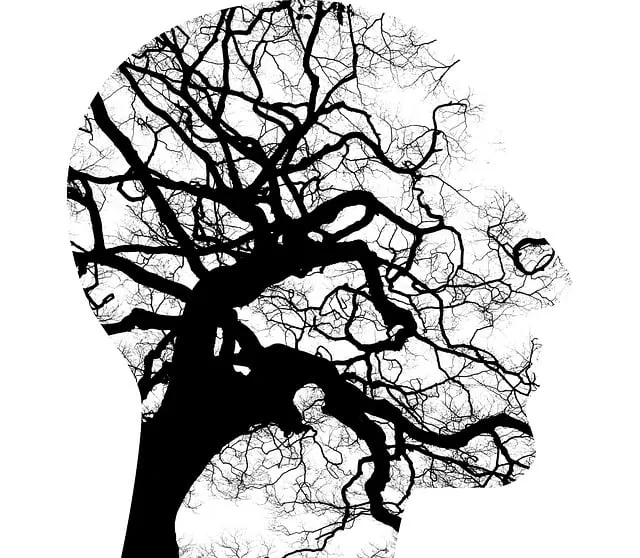Lone Tree's Kaiser Permanente offers a comprehensive inpatient mental health program focusing on holistic approaches like stress management, mindfulness, and conflict resolution techniques. Their rigorous yet compassionate evaluation measures improvements in areas such as self-awareness and relationship maintenance, aiming to revolutionize care by empowering individuals with lasting coping strategies for long-term mental wellness. Through participant feedback and tailored self-care practices, they continuously refine their programs based on both quantitative and qualitative data.
Mental wellness program evaluation is a critical component in improving healthcare outcomes. This article explores three distinct methods employed by industry leaders, focusing on evaluating inpatient mental health services. We compare Kaiser’s established approach with Lone Tree’s innovative strategy, highlighting their unique strengths. By examining these case studies, we gain valuable insights into the effectiveness of different evaluation techniques and their impact on patient care, ultimately enhancing our understanding of how organizations like Kaiser and Lone Tree can optimize their mental health programs.
- Understanding Mental Wellness Program Evaluation
- Inpatient Mental Health Services at Kaiser: A Case Study
- Lone Tree's Approach to Evaluating and Enhancing Programs
Understanding Mental Wellness Program Evaluation

Evaluating mental wellness programs is a multifaceted process that goes beyond assessing mere symptoms. It involves understanding the program’s impact on individuals’ overall well-being, including their ability to manage stress, maintain healthy relationships, and improve self-awareness. At Kaiser in Lone Tree, for instance, inpatient mental health services are designed not only to treat acute conditions but also to equip patients with lasting coping strategies.
This holistic approach integrates various methods, such as Self-Awareness Exercises and Conflict Resolution Techniques, to enhance Mental Health Awareness. By measuring improvements in these areas, evaluation teams can gauge the program’s effectiveness in fostering resilience and promoting positive mental health outcomes. Through rigorous yet compassionate assessment, Kaiser aims to revolutionize care, ensuring individuals leave with enhanced life skills and a profound sense of well-being.
Inpatient Mental Health Services at Kaiser: A Case Study

Lone Tree’s Kaiser Permanente offers a comprehensive inpatient mental health services program, providing a safe and structured environment for individuals experiencing severe mental health crises. This case study highlights Kaiser’s innovative approach to addressing complex psychiatric needs. Inpatient care at Kaiser is tailored to each patient’s unique requirements, encompassing various evidence-based practices such as Stress Management Workshops Organization, Mindfulness Meditation, and Crisis Intervention Guidance.
The program focuses on intensive treatment, individual therapy sessions, group support, and education to empower patients with coping strategies for long-term mental well-being. By combining medical expertise with holistic wellness techniques, Kaiser strives to not only stabilize patients but also enhance their overall quality of life.
Lone Tree's Approach to Evaluating and Enhancing Programs

Lone Tree takes a holistic approach to evaluating and enhancing mental wellness programs, focusing not just on the absence of illness but on fostering resilience and promoting overall well-being. Their method involves regular participant feedback surveys to gauge satisfaction and effectiveness. Additionally, they implement self-care practices tailored to individual needs, providing crisis intervention guidance as needed. This proactive strategy ensures that programs are not only meeting expectations but also boosting participants’ confidence and empowering them to navigate life’s challenges effectively.
Lone Tree’s evaluation process includes in-depth interviews with individuals who have utilized their inpatient mental health services, such as those offered by Kaiser. This approach allows for a deeper understanding of personal journeys and the impact of the program on long-term mental health. By combining quantitative data from surveys with qualitative insights from interviews, Lone Tree can identify areas for improvement and continue to refine its programs, ultimately enhancing the lives of those seeking support.
Evaluating mental wellness programs is crucial, whether it’s a comprehensive case study like that of Kaiser’s inpatient services or Lone Tree’s targeted approach. Both methods, as showcased in this article, highlight the importance of measuring impact and identifying areas for improvement. By learning from these examples, organizations can enhance their programs, ensuring they cater effectively to individuals’ mental health needs. Understanding evaluation methodologies allows for data-driven decisions, ultimately fostering better outcomes and a more robust support system for those seeking mental wellness assistance.






